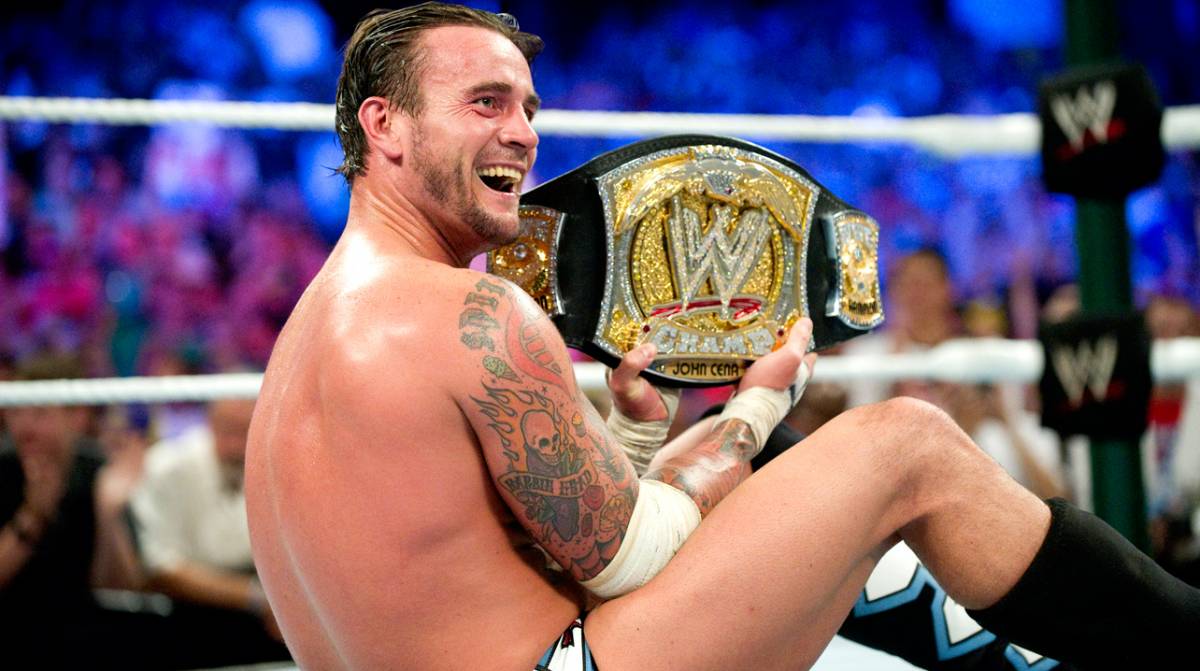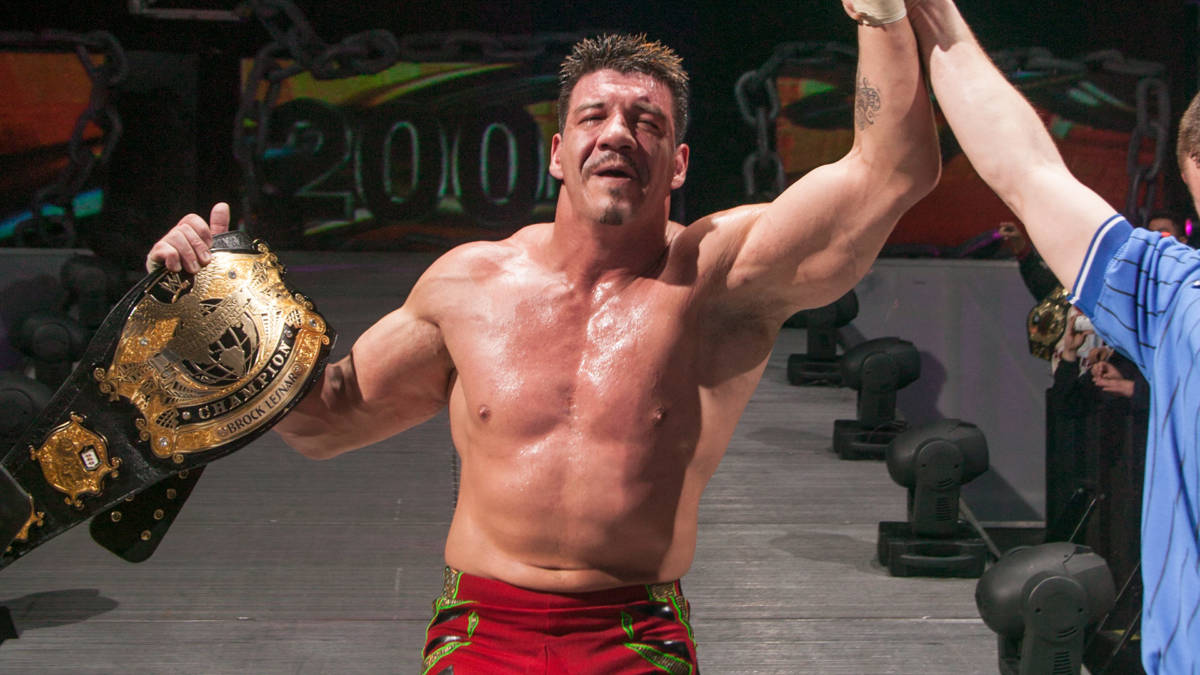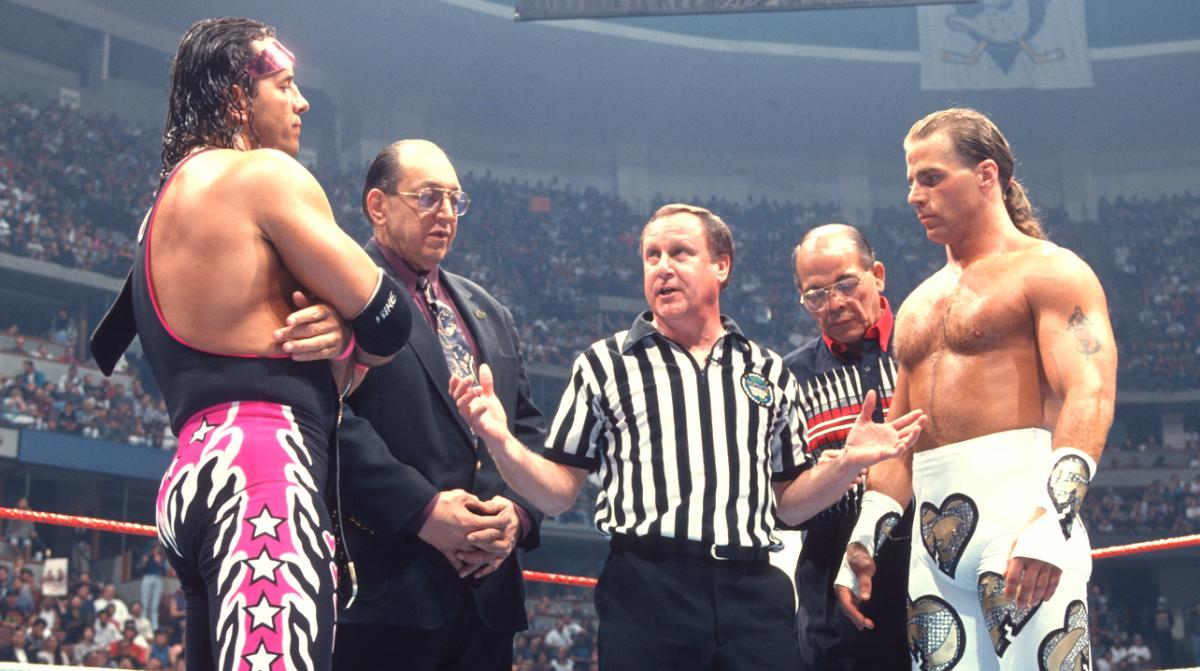I love professional wrestling. Nothing else offers this incredible combination of live theatre, combat sports, and melodrama. I believe wrestling’s individuality is what draws me and so many others to it time and time again, and it’s that singularity that leads so many of us to become diehard fans. That said, there is this culture surrounding wrestling and its fandom that I believe can make them vulnerable to misinformation, and we’ve seen it happen with recent events such as everything surrounding Drake Wuertz. I’d like to dig into this culture, why it exists, and how it can lead people to doubting actual events or, in some cases, falling deep into conspiracy theories like QAnon.
One of the concepts that makes wrestling so unique is kayfabe. In modern contexts, kayfabe is largely a relic; almost no one believes that the events taking place in WWE or New Japan Pro Wrestling are legitimate combat sports or real conflicts between real people. They’re shows with characters, story arcs, and themes like any other, but the idea that wrestlers’ characters are 1:1 with their actual personalities still persists from time-to-time.
There is merit to this. AEW’s MJF, for example, rarely does interviews or makes statements on social media without doing so as his smarmy, arrogant rich kid character. It makes his job as a heel much easier because there are fewer examples of him, say, being a really nice person in his day-to-day life to look at and go “See? He’s not a bad guy.” By contrast, I was never able to root against William Regal when, as a child, I read his autobiography and got a window into the struggles he went through to even survive, let alone thrive, in this business.
Kayfabe and by extension professional wrestling were built on lies, designed to convince their audiences that everything they watched was not scripted in any way. This was a complex lie to maintain, and it created a culture where wrestlers always had to be “working the marks” and had to always be ready to lie and convince a layman that they really wanted to kill whomever they were feuding with.
The original Sheik, Ed Farhat, refused to be seen speaking English in public for almost his entire life despite being the owner and booker of the same Detroit territory where he terrified thousands. His wife would always do the shopping for them because what would people think if they saw The Sheik comparing egg cartons?

Even post-kayfabe, wrestling companies still like trying to convince fans that what they’re seeing is real, for good or bad. Vince Russo’s booking style is notorious for this, with wrestlers “going off-script” frequently or using their real names instead of their stage names in promos. CM Punk’s twin Summer of Punk runs in Ring of Honor in 2006 and WWE in 2011 built off that same “reality” mentality, with Punk’s actual contract status with the two companies being used to add intrigue to the storylines he found himself in at the time.
In response to this insistence on “working the marks” by promoters and wrestlers, wrestling’s “smart fans” have developed an attitude of intense distrust of basically the entire wrestling business. If a wrestler leaves a promotion, such as Jon Moxley leaving WWE in 2018, the immediate response is it’s a storyline to write the character off the show for a time. This isn’t restricted to fans, either. X-Pac and Kevin Nash have stated on camera they believe the Montreal Screwjob is a work. Or if a new wrestling company opens up in the US and sees a fair amount of success, people like the aforementioned Russo will insist the new company and WWE are working together.
Even very real death isn’t safe.
On December 26, 2020, Jon Huber aka Brodie Lee’s death from non-COVID-related lung issues was made public. By and large, the wrestling community mourned and poured condolences onto the Huber family for their loss. Wrestlers talked about what a wonderful human being he was, fans did fanart or just in general talked about how his work touched their lives. However, then-Pro Wrestling Torch columnist Bruce Mitchell wasn’t convinced of that cause of death and wrote an article saying as such, alleging that AEW and the Huber family were covering up the real cause of Huber’s death due to COVID-19. This article led to Mitchell’s dismissal from the Torch.
I’m not going to analyze Mitchell’s article here, as it was thoroughly dissected at the time. In short, I think the allegations are ridiculous, insensitive, and infuriating.
Instead, I’d like to talk about the backlash Mitchell received. The majority of the wrestling community bashed the article and insulted Mitchell for writing it. It was treated as an aberration, an outlier that made the rest of the community look bad for its existence.

While I agreed with the sentiment that it made the community look bad, the article isn’t an outlier. I saw the same thing happen when Eddie Guerrero died. I remember seeing post after post online of people claiming Guerrero wasn’t really dead and that he would return at the 2006 Royal Rumble. When it wasn’t the Rumble, it was Wrestlemania 22, and when it wasn’t Wrestlemania 22, it was Wrestlemania 23. It always has to be a work, always has to be another way to get people interested in your product, always has to not be real, or if it is real, they’re covering up what really happened. This is wrestling, after all, and things can never be what they say they are in wrestling.
That’s an exhausting mindset, right? But it’s one that everyone involved in wrestling, from fans to talent to promoters, possesses on some level, and it’s not a healthy one for a lot of them. It’s that same mindset that convinces Nash and X-Pac that one of their closest friends, Shawn Michaels, is working them just as hard as he’s working “the marks.” It’s that same mindset that can lead to people such as NXT referee Drake Wuertz turning to conspiracy theories like QAnon and going on absurd public rants about mask mandates while wearing a company logo on his chest.
It’s healthy and necessary to question the information a source gives you, to question their motives and method of delivery. It’s valuable to be able to look at a news source and critically discern whether or not they’re telling you the truth, and I am not advocating for everyone to just take every piece of news thrown your way as gospel. But it’s like a magic trick. The closer you look, the more often you try to disprove or doubt every single little thing you’re told, the more likely you are to be fooled by someone actually trying to trick you.
READ NEXT: The Best IWGP Intercontinental Title Matches of All Time
Some of the coverage you find on Cultured Vultures contains affiliate links, which provide us with small commissions based on purchases made from visiting our site.

